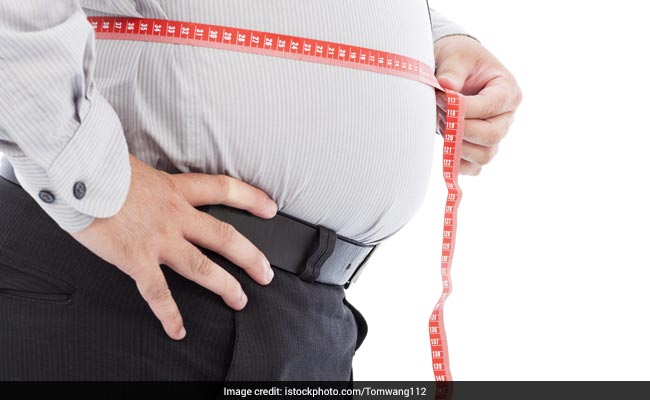Everything you need to know about bloating vs fat and how to manage it.
Everything you need to know about bloating vs fat and how to manage it.
Blog Article
Comprehending the Distinction Between Bloating and Fat: an Essential Guide for Digestive Health
Comprehending the difference between bloating and excess body fat is important for any person concerned with digestive system health and wellness. While bloating presents as a short-term and frequently uneasy problem, usually linked to dietary practices or digestive system disruptions, body fat represents a more irreversible modification in one's figure. This distinction is not merely academic; it lugs substantial ramifications for just how individuals approach signs and treatment. As we discover the subtleties of these 2 sensations, the relevance of acknowledging their respective causes and monitoring methods comes to be increasingly obvious. What are the functional actions one can take to resolve these concerns properly?
Defining Bloating and Fat
Bloating and fat are two unique physiological phenomena that can significantly impact an individual's comfort and body picture. Bloating describes the short-term swelling or distension of the abdomen, often gone along with by pain or a sensation of volume. This problem might emerge from numerous variables, including dietary options, digestive system concerns, or liquid retention. Bloating is typically a short-term incident and can vary throughout the day, often solving with way of living changes or clinical interventions.
On the other hand, body fat is a much more long-term and secure component of human physiology, mostly working as a power reserve and playing essential duties in hormonal agent regulation and insulation. Body fat is classified into 2 types: subcutaneous fat, which exists just beneath the skin, and natural fat, which borders inner body organs. While excess body fat can lead to health complications, it is essential for total bodily functions.

Sources Of Bloating

Furthermore, food intolerances, such as lactose or gluten intolerance, can result in bloating when the body battles to refine particular substances - fat vs bloating. Eating too swiftly or eating carbonated beverages can likewise exacerbate the issue, as these behaviors present excess air right into the digestive tract
Way of life factors, including tension and absence of physical activity, can better contribute to bloating by impacting gut mobility. Specific medical problems, such as short-tempered digestive tract disorder (IBS) or intestinal obstruction, may also result in persistent bloating. Recognizing these causes is necessary for successfully taking care of and relieving bloating, enabling individuals to make informed look what i found nutritional and way of living selections that sustain their gastrointestinal health.
Signs of Bloating vs. Fat
Comparing the symptoms of bloating and excess fat is critical for recognizing one's body and dealing with discomfort properly. Bloating normally presents as a sensation of fullness or pressure in the abdomen, often come with by noticeable distension. People might experience discomfort, cramping, or perhaps pain, specifically after dishes. Bloating can likewise result in extreme gas, bring about burping or flatulence.
While it might contribute to a feeling of heaviness, it typically does not produce the intense pain linked with bloating. Rather, excess fat tends to accumulate slowly, leading to a change in body form and size over time.

Identifying these differences is important. While bloating is usually short-term and connected to nutritional aspects or digestive system problems, excess fat shows a more chronic condition needing way of living modifications. Recognizing these symptoms equips individuals to look for suitable options tailored to their specific worries relating to digestion health and body structure.
Managing Bloating
Efficient management of bloating requires a diverse approach that addresses both nutritional selections and lifestyle practices. Initially, it is important to determine and eliminate particular foods that may cause bloating, such as those high in fiber, gluten, lactose, or particular fermentable carbohydrates (FODMAPs) Maintaining a food journal can assist pinpoint these triggers and overview why not try this out modifications.
Integrating smaller sized, extra frequent meals as opposed to huge ones can also minimize bloating, as it reduces the gastrointestinal procedure (fat vs bloating). Remaining well-hydrated is crucial, as sufficient liquid consumption aids digestion and aids protect against constipation, which can contribute to bloating
Furthermore, engaging in regular physical activity promotes gastrointestinal mobility and lowers bloating. Straightforward exercises, such as strolling or yoga, can properly reduce pain. Mindful eating methods, such as consuming slowly and eating food completely, might additionally enhance food digestion and limit air swallowing.
When to Seek Aid
Identifying when to look for clinical aid for bloating is vital, as relentless or extreme signs and Discover More Here symptoms might suggest a hidden health issue. If bloating is come with by additional concerning signs such as substantial stomach pain, unexplained weight-loss, rectal bleeding, or continual queasiness and vomiting, it is necessary to seek advice from a health care professional. These signs may recommend conditions such as irritable bowel disorder, intestinal blockage, or perhaps a lot more significant problems like cancer.
Moreover, if bloating lingers in spite of dietary modifications or non-prescription solutions, it requires more examination. Individuals with a history of intestinal conditions ought to be specifically watchful, as their danger for difficulties might be greater. Furthermore, if bloating happens following the usage of specific foods, it might indicate food intolerances or allergic reactions that demand dietary changes or testing.
Verdict
In recap, differentiating between bloating and excess body fat is essential for digestion wellness and total health. Bloating, a short-lived problem frequently linked to dietary variables and gastrointestinal problems, contrasts sharply with the steady buildup of body fat.
Report this page